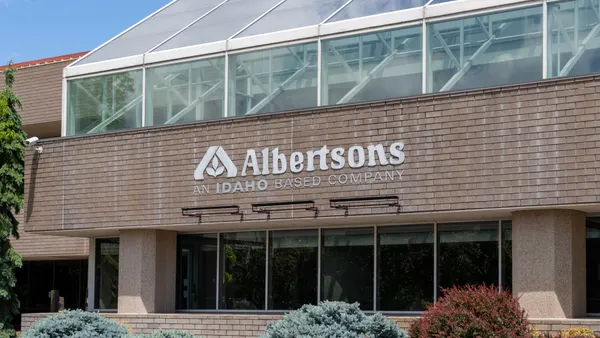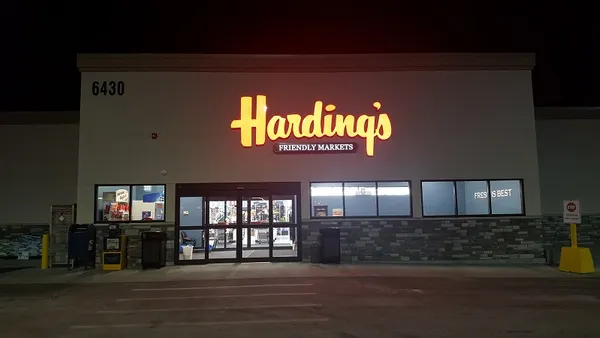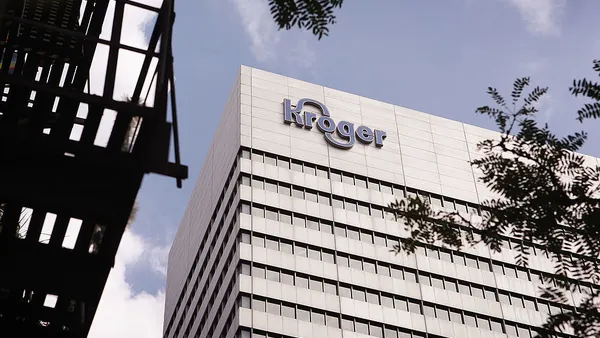Dive Brief:
- The National Grocers Association has released a television spot designed to draw public attention to what the trade group says are “unfair and discriminatory tactics” by large food retailers that hurt independent grocers.
- The commercial urges the Federal Trade Commission to enforce antitrust laws at a time when “Americans face higher prices [and] less choice and access to fresh food.”
- The NGA has been maintaining pressure on regulators as the federal government considers Kroger’s plan to acquire Albertsons in a deal that would create the nation’s biggest supermarket chain.
Dive Insight:
The new TV commercial portrays independently owned food retailers as essential to providing consumers access to fresh food and says they are being hampered in that mission by “big chains [that] are using their market share to squeeze suppliers and box out competition.”
The 30-second spot, which juxtaposes images of people buying food with footage of abandoned grocery stores, appeals to the FTC to exercise powers under existing laws that “have been ignored for a generation.”
The commercial shows the exterior of a Walmart store, although the voiceover does not refer by name to the retailer. The spot concludes with a call for the agency to resurrect the Robinson-Patman Act, a Depression-era law that bars companies from charging competing buyers different prices for the same items.
The NGA, which represents over 1,800 independent retailers, says its members together operate almost 9,000 locations, with at least one in every congressional district.
The organization has said the smaller grocers that comprise its membership face an uneven playing field in their efforts to compete with large chains. In particular, the association says “power buyers” use their scale to wring “discriminatory prices and more favorable supply terms, special package offerings and product availability” from suppliers, the NGA said in announcing the television spot.
“For decades, dominant firms in the grocery marketplace have leveraged their buying power to demand special treatment through access to products, promotions and better prices from suppliers that are not offered to independent community grocers,” NGA CEO and President Greg Ferrara said a statement. “This unchecked anticompetitive behavior leaves independent store owners and their customers with less choice, fewer options and paying more for goods and products.”
The FTC said last November that it planned to step up its enforcement of a portion of the Federal Trade Commission Act of 1914 that prohibits “unfair methods of competition.” The announcement drew praise from the NGA and criticism from the U.S. Chamber of Commerce, another business group.
While the NGA makes the case that the proposed Kroger-Albertsons combination would squeeze competition from the grocery market, executives of those chains have disputed that assertion.
Speaking in November during a U.S. Senate hearing about the planned merger, Albertsons CEO Vivek Sankaran said marketplace forces would prevent the companies from taking unfair advantage of their position. “Muscle from retailers works for a short period of time. Manufacturers and suppliers always find a way around it,” Sankaran said.













